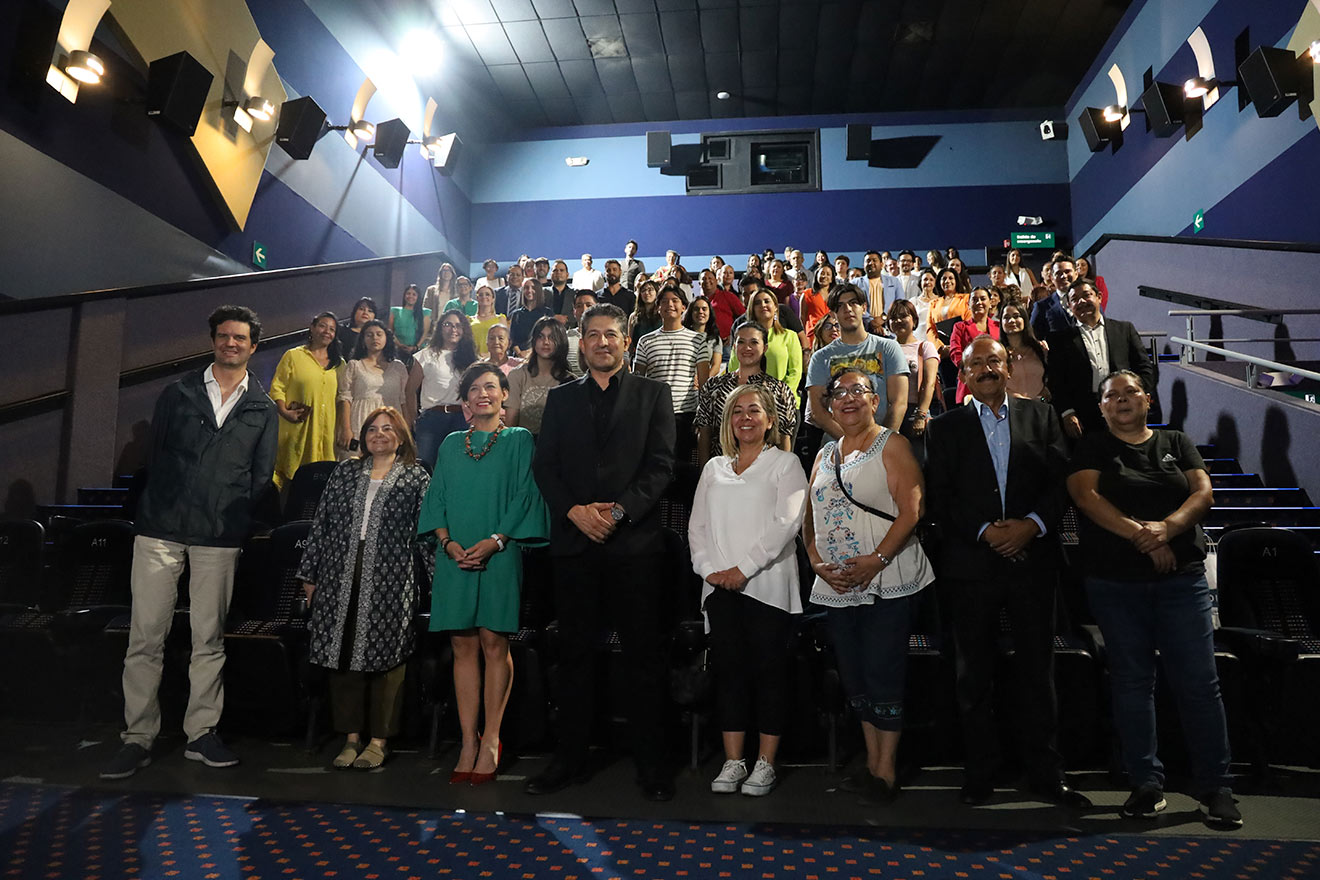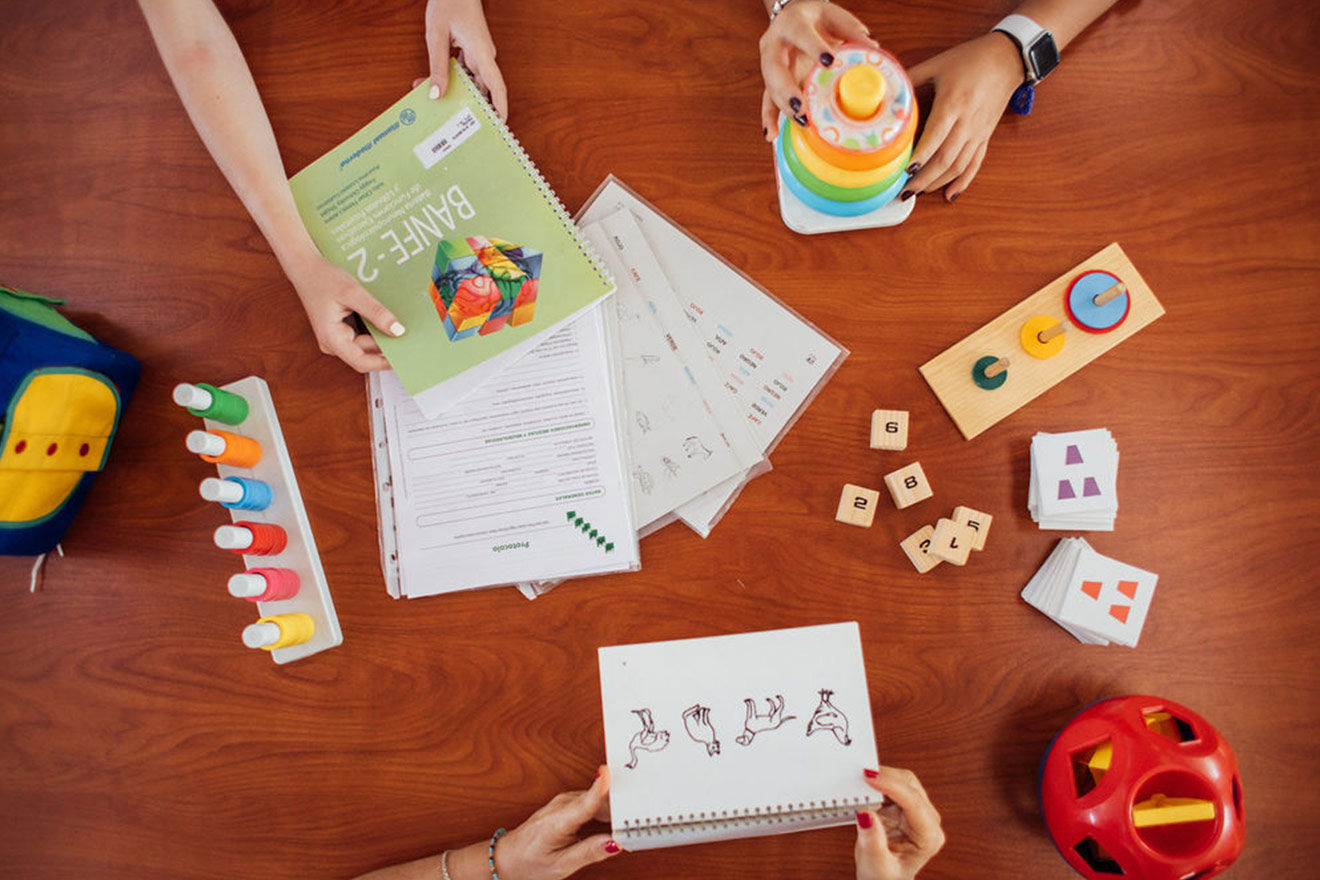ZAPOPAN, Jalisco; May 24, 2023. Panamericana the importance of pollination was discussed in depth so that the university community can contribute to the conservation of the environment from their homes.
Pollination on the Pan-American Highway
"When we talk about pollination, we must necessarily talk about flowers. Some are pollinated by the wind, others by animals such as bees, bumblebees, ants, wasps, beetles, flies, butterflies, moths, birds, hummingbirds, bats, among others." Eduhuerto.
To learn more about the topic, 2 events were held: Home Garden Workshop: Pollinator Plants and Bee Pollination Talk and a honey tasting.
Home Gardening Workshop
First, a Home Garden Workshop: Pollinator Plants, where the monarch butterfly cycle and pollinator plants were explained in order to have more butterflies. Each of the 22 students who attended the workshop took home an asclepia plant with caterpillars and were informed about the care they had to take into account in order to have more monarch butterflies.
The students experienced at home the whole caterpillar cycle, they saw beautiful cocoons form and at the end they managed to hatch many monarch butterflies which they released. Each one of them lived this moment as a family since everyone at home participated in taking care of the plant, caterpillars and butterflies.
"I loved the experience in the Home Garden Workshop because I learned more about pollination and the importance of the process that takes place in all the stages of the life of a butterfly and focus on small details that make great contributions to the environment. I liked to see the whole process at home because every day I saw the evolution of the butterfly in a different way. From watering the plant and looking for food for the caterpillars, to seeing them turn into cocoons and finally turning into butterflies." Paola Carolina Fonseca Gutiérrez, Administration and Finance student, commented.
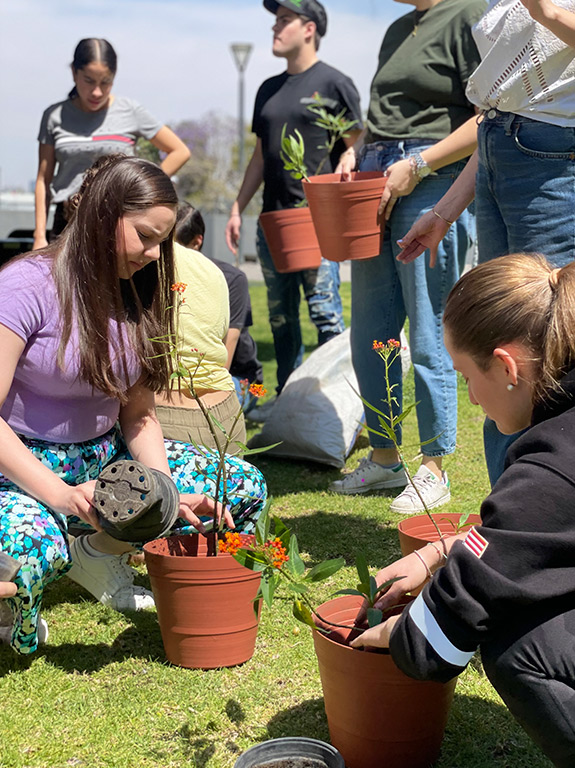
Bee Pollination Talk and Honey Tasting
On May 9, 2023, a bee pollination talk and honey tasting session was held for 38 members of the university community to experience this valuable event.
During the event they learned about the importance of bees, the diversity of bees and their strong relationship with plants. They recognized bees as an essential link in the pollination of flowering plants. They discovered that 5% of all bee species produce honey. They told us that there are more than 20 thousand types of bees in the world. Jalisco has approximately 300 species of bees. The more diversity of flowers you put in your garden, the more types of bees you will have in your garden, the bee we commonly know is called: apis melifera and there are also native bees.
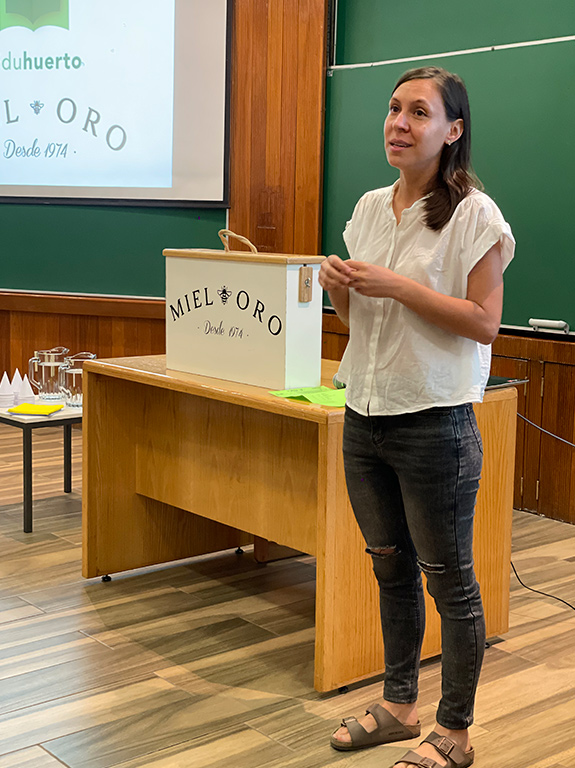
May 20 is World Bee Day, so here are some tips on how to take care of them:
- Put flowers in your house.
- Set up troughs for bees.
- Avoid the use of chemical insecticides.
- Let them take their food so that they can return to their hive and perform their pollinating function.
- If you see a honeycomb of bees or wasps we leave you the contact information of people who rescue honeycombs IG: coyotecreekranchhoney
At the end, each of the attendees tasted 3 samples of "honey". One of them was adulterated honey, which led to a discussion on how to recognize fake honeys in the market.
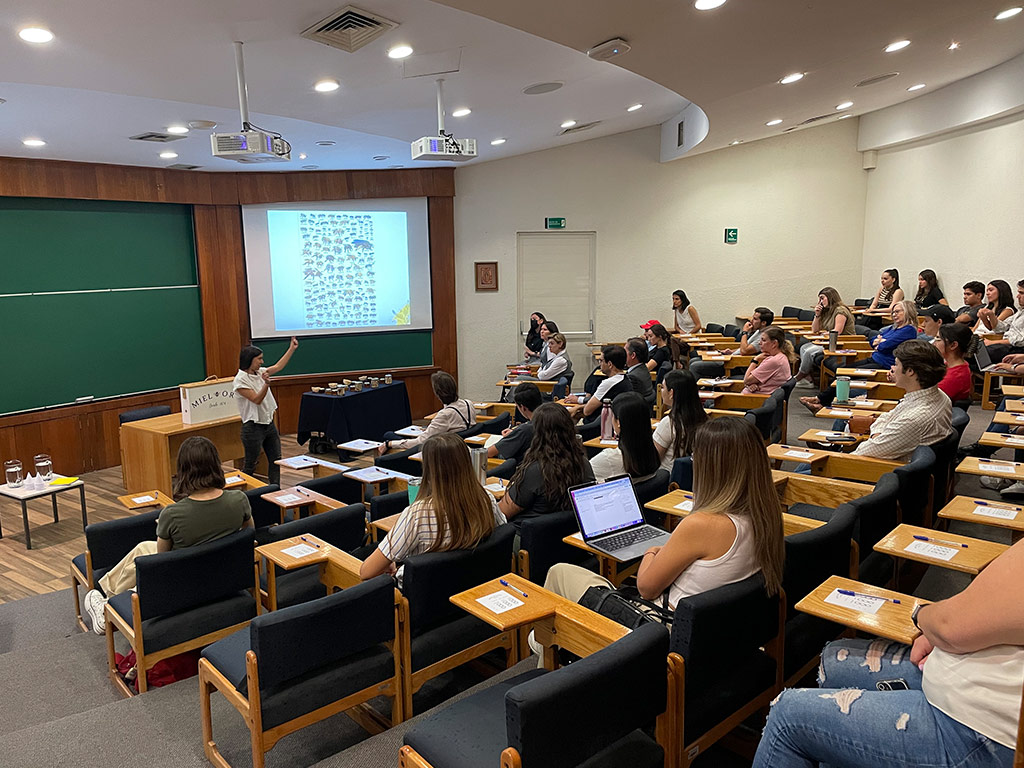
"Understanding the life and behavior of bees is to understand life cooperating to achieve the same end, observing their work it is easy to realize the importance that each individual has as such within society, to achieve a common good" Eduhuerto.
Both events were thanks to the experience and information shared with us by the company Eduhuerto, whom we thank. And in the honey talk we had the presence of Miel Oro Guadalajara.
Thank you very much to all the participants, we hope you learned and apply all the knowledge to continue taking care of our planet earth, our common home.







